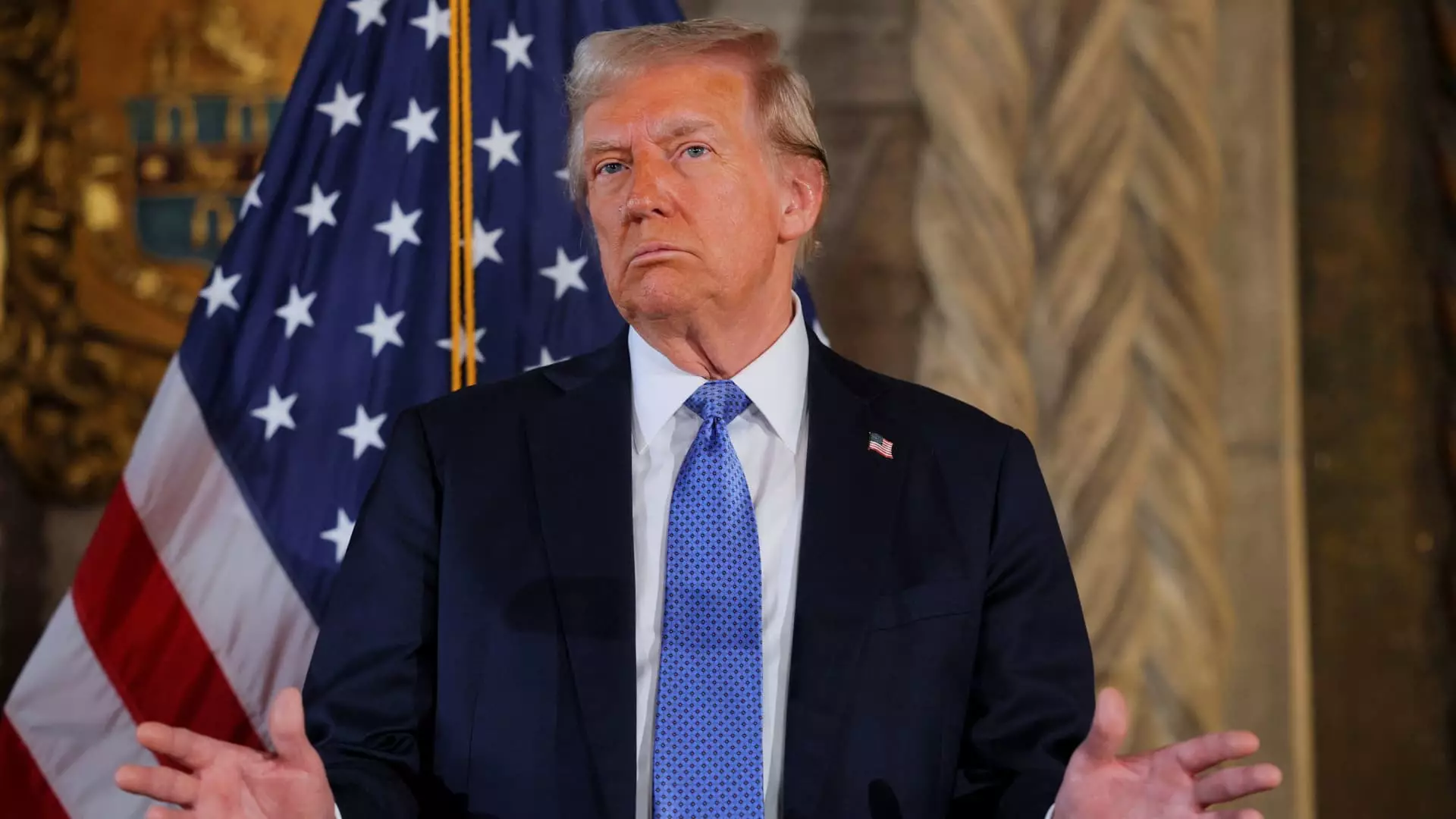In the backdrop of the shifting global economy, the trade dynamics between the United States and the European Union have been heavily scrutinized. Recently, President-elect Donald Trump articulated a bold directive for the EU, demanding substantial increases in oil and gas purchases from the U.S. to balance an existing trade deficit. This declaration, delivered via social media, underscores an ongoing discourse surrounding tariffs and energy policy that could greatly influence transatlantic relations.
The U.S. trade deficit with the European Union stood at a staggering $131.3 billion in 2022, reflecting significant imbalances in the exchange of goods and services. Trump’s insistence that the EU remedy this gap—primarily through energy procurement—exemplifies a transactional perspective on international trade. This approach could reshape existing trade agreements, spotlighting energy as a pivotal element in wider economic negotiations. With the EU already expressing interest in escalating its U.S. energy imports, Trump’s demands place a spotlight on how energy trade could facilitate broader economic negotiations between the two powers.
In response to Trump’s statements, EU officials indicated an awareness of the complexities at play. The commentary from a senior diplomat suggested a pragmatic acknowledgment of energy as a viable pathway to mitigate the trade deficit. However, the sentiment also echoed a cautious approach, highlighting a potential need for strategic retaliation should trade relations deteriorate further. The previous discussions among EU leaders have reinforced a commitment to maintaining robust ties with the U.S., calling for careful navigation amidst rising tensions.
Trump’s presidency has been marked by a penchant for imposing tariffs, a strategy that has attracted considerable critique from economists and policymakers alike. Analysts have raised alarms about the potential inflationary consequences that could arise from such tactics, underscoring that tariffs may not only harm foreign partners but could also backfire domestically. Given the rising uncertainty regarding the exact implementation of tariffs and the potential impulse to leverage them as bargaining chips, there is a palpable tension between trade ambitions and economic prudence.
Expert Insights on Trade Tactics
Experts offer varying perspectives on how the EU should strategically navigate these waters. Enrico Letta, former Italian Prime Minister, emphasized the importance of responding to Trump’s approaches with an equally transactional mindset, particularly emphasizing that intertwining energy policy with tariffs may be misguided. Letta’s assertion that Europe should consider financial measures in response reveals an understanding of the economic complexities in U.S.-EU relations. A direct focus on financial implications and targeted response could offer a more coherent strategy for Europe to counterbalance Trump’s energy-centric demands.
The Future of U.S.-EU Energy Relations
Looking ahead, the U.S. has positioned itself as a critical supplier of energy to Europe, with expectations of increased exports in the coming years. The EU’s strategic pivot to U.S. energy sources is partly a response to the geopolitical landscape, particularly in the wake of reduced reliance on Russian natural gas. European Commission President Ursula von der Leyen’s remarks regarding the financial viability of U.S. liquefied natural gas (LNG) procurements indicate a readiness on the part of Europe to reshape energy alliances. The actualization of these intentions, however, will necessitate careful negotiations as Trump transitions into office.
Lastly, the realities of U.S.-EU trading relationships present an intricate tapestry of economic interests. As Trump embarks on his presidency with aggressive posturing on tariffs and a focus on energy transactions, the outcome remains uncertain. The EU’s path must be one of calculated engagement, recognizing both the potential benefits and pitfalls inherent in Trump’s approach. The interplay between energy procurement and traditional merchandise trade will be crucial as Europe seeks to assert its interests on the global stage while maintaining a cooperative stance with one of its most important partners.

